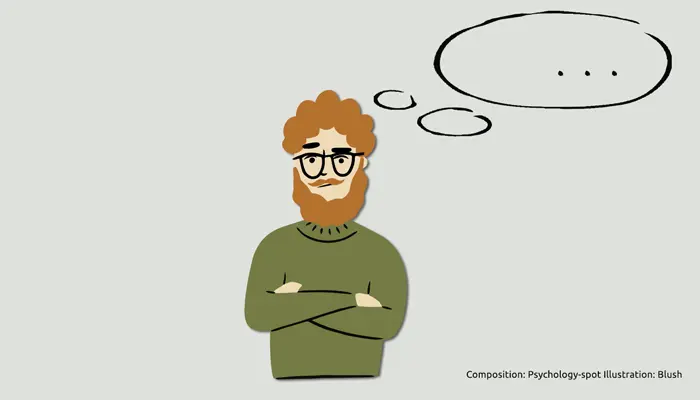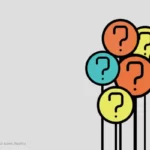
Are you one of those who thinks that your cat only loves you because you open the can of food? Do you think all politicians are corrupt? You don’t trust NGOs, or any organization in a general sense. Do you think that everyone who asks for alms will then spend those money on drugs? Are you convinced that your co-worker is only being kind for asking you a favor in return? Do you think that research that says the Mediterranean diet is healthy has been paid by lobbyists to make you buy their products?
If you felt identified with most of these statements, you are likely to be a cynical person. However, there is little to celebrate because hostile cynicism has been linked to numerous health problems. Although you probably won’t even discover it because, to be true to your cynicism, you will be suspecting that this article is part of some mega world conspiracy to force you to think like the others, to follow the channels of normalized thinking that you hate so much.
What is cynicism?
“You are a bitter man,” said Candido.
“That’s because I’ve lived,” said Martin.
In this synthetic “Candido” dialogue, Voltaire summed up perfectly what cynicism is.
Cynicism was a philosophical system that, in its origins, back in the first century, competed with other philosophical currents, such as Stoicism. But it didn’t win. Of the principles that involved living according to nature embracing minimalism, little remains. Modern cynicism was forged between the eighteenth and early nineteenth centuries, retaining its philosophical roots only the propensity to doubt people’s motives.
At present, cynicism refers to disbelief in the motives expressed, it implies doubting the sincerity and goodness of the others and, by extension, the social and ethical norms and values that we share. That doubt not only generates distrust, but is often accompanied by contempt and pessimism about the others and humanity in a general sense.
Cynicism: Psychology of cynical people
The line between cynicism and objectivity can become very subtle. They say that after 40 years, it is practically impossible not to have accumulated several atoms of cynicism – who else and who less. In fact, cynicism exists in a broad spectrum, so being cynical in certain circumstances or issues does not necessarily imply that we are cynical people.
Infact, most cynical people are disappointed idealists. Generally they are people who had unrealistic standards and expectations and who, instead of adjusting, commit to change their closest environment or simply withdraw silently, displayed their cynicism as a weapon and shield.
From this perspective, cynicism is a defensive attitude. If we always expect the worst of all and everything, they won’t be able to hurt us or make us feel disappointed. It is about making sure that all the angles are covered, foreseeing all possible and impossible eventualities, defend our “ego” by layer and sword.
At the same time, that cynicism makes us feel superior. In fact, the cynical person tends to take pride in his cynicism and softens it as a banner of objectivity, rationality and intelligence, although in reality behind that shell lies a more sensitive and vulnerable person than we imagine.
The long list of damages caused by cynicism
Cynical people who usually assume a derogatory, irritating and discouraging attitude are the first to suffer their cynicism. Cynics can see that characteristic as a reflection of a cold and hard realism, but when it is taken to the extreme it can become an unhealthy attitude, as evidenced by growing scientific evidence in which a more pessimistic picture is drawn than the one cynics themselves could imagine.
First, cynics have a higher risk of developing dementia, as noted in a study recently published in the journal Neurology. After analyzing 1,146 people, these researchers discovered that cynical people are three times more likely to suffer from dementia than those with a low level of cynicism.
Cynicism also increases the risk of cardiovascular disease. It was confirmed by another study published in the journal Circulation and conducted in 97,253 women. The researchers explain that cynicism increases our daily stress level, affects coping skills to deal with adversity and decreases social support.
Men are not saved either. Another study conducted at the University of Health Sciences of Lithuania with 2,682 men aged between 42 and 61 years showed that cynics are more likely to suffer an early death. After following them for 28 years, they appreciated that cynicism increased the risk of premature death by 1.5 to 1.7 times.
Why is cynicism so harmful?
Part of the explanation comes from the hand of a study conducted at Carnegie Mellon University in which it was noted that hostile cynicism is related to inflammation. That attitude stimulates pro-inflammatory activity through cytokines.
The other part of the explanation comes from the hand of pessimism and social isolation to which cynicism leads, states that do not contribute precisely to our health. In fact, a study from the University of Utah revealed that cynical people are more likely to feel provoked by the actions of the others, which triggers an exaggerated physiological response that probably keeps stress levels high.
The effects of cynicism are not only appreciated in our health but also extend to our income. A study conducted at the University of Cologne found that cynical people have a lower income because they are distrustful and excessively controlling, so that they do not take advantage of the benefits of cooperation and spend a lot of energy by monitoring the work of the others.
This cluster of research confirms that the way we see the world has a powerful effect on our health, so that hostile cynicism ends up becoming a boomerang that turns against us.
To be or not to be cynical: That is the dilemma
Sometimes, with the blows of life, it is almost inevitable not to develop a cynical attitude. That is not necessarily negative, as long as we do not lose the control.
Diogenes, probably the best known cynic, raised a lamp for the Athenians inviting them to question their beliefs, values and priorities, and pointing them to a more authentic and satisfying path.
His goal was to eliminate fog and confusion to see reality with greater clarity. In fact, george Bernard Shaw defined cynicism as “The power of accurate observation.” A cynical person will refuse to be pigeonholed, put labels on himself and can become very objective and a shrewd observer when a dose of realism is necessary.
The cynical, after all, is inclined to question the motives of people and society in general, wants to destroy any form of conventionalism. And that is not bad. The bad thing is starting with the presumption that all the motives are perverse and to become defensive because that implies that we are closing ourselves to reality.
The key for cynicism to not harm us is to use questioning and doubt not as an end in themselves, but as a means to eliminate fog and try to see things as they are – or at least as objectively as possible. As Oscar Wilde said: “Cynicism consists in seeing things as they really are, and not as we want them to be”. And that means being open to the negative, but also to the positive.
We can take advantage of life’s experiences, not to develop a hostile cynicism but to realize what really matters and eliminate all that does not work and is only hindering. We need to put into practice intelligent cynicism, which is not a general negativity towards the world but a focus of search for what is really worthwhile, knowing how to separate the gold from the straw.
Sources:
Šmigelskas, K. et. Al. (2017) High levels of cynical distrust partly predict premature mortality in middle-aged to ageing men. J Behav Med; 40(4): 612-619.
Stavrova, O. & Ehlebracht, D. (2016) Cynical beliefs about human nature and income: Longitudinal and cross-cultural analyses. Journal of Personality and Social Psychology; 110(1): 116-132.
Neuvonen, E. et. Al. (2014) Late-life cynical distrust, risk of incident dementia, and mortality in a population-based cohort. Neurology; 82(24): 2205-2212.
Janicki-Deverts, D. et. Al. (2010) Cynical Hostility and Stimulated Th1 and Th2 Cytokine Production. Brain Behav Immun; 24(1): 58–63.
Tindle, H. A. et. Al. (2009) Optimism, Cynical Hostility, and Incident Coronary Heart Disease and Mortality in the Women’s Health Initiative. Circulation; 120(8): 656-662.
Allred, K. D. & Smith, T. W. (1991) Social cognition in cynical hostility. Cognitive Therapy and Research; 15(5): 399–412.



